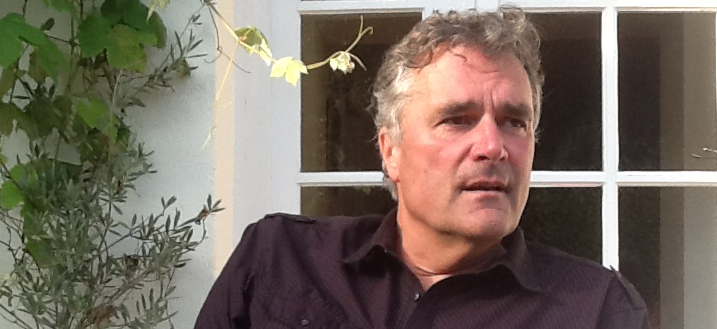In Nederland hebben we te maken met maatschappelijke verandering. Rudolf Steiner was een visionair en rond 1930 beschreef hij onze tijd als de overgang van het zoeken naar wat ons onderscheidt van de ander, naar wat ons bindt met de ander. Waar we de laatste decennia in organisatieverband vooral geleerd hebben ons individuele standpunt te dienen en vast te houden. Gaan we nu toe naar netwerkverbanden waarin we op zoek zijn naar wat we gemeenschappelijk willen. We leven nu in een tijd waarin we het einde van de overheersing van het (hedonistische) individualisme beleven en daarmee het einde van het wij-zij denken.
De maatschappelijke vraagstukken die we moeten oplossen dagen ons uit om te stoppen met het wij-zij denken. Er is dus ook een urgente noodzaak.
Zie hiervoor de engelse tekst:
“It will never be the same”: you hear often as the conversation comes to the economic crisis. We live in a period of transition. Most people feel that fundamental change is needed. Only politicians and bank directors believe that by taking the right measures current systems and structures will prevail.
What most people feel or believe is substantiated by latest developments. In Europe we have several crises at once. Sofar, we have a monetary unit crisis, a political EU crisis and an economical crisis. Other challenges are lying ahead. What these crises share is the need for alignment of conduct and consciousness between indviduals, regions and nations. We have to stop looking for what separates us and instead start looking for what is connecting us. We didn’t manage to blame the Greek and letting them pay for the damage. It is cristal clear that leaving them suffer on their own will have direct consequencies for our future.
The scarcity of our resources is another structural development that forces us to invent non-defensive multinational interventions we have never used before. Sofar, the common defensive one’s didn’t work. The price of oil is rising structurally; independent of market influences. Since 2004 the demand for oil exceeds global production capacity. Oil can be replaced by other resources. But it has to be done by everybody; including airlines.
New unknown and crucial challenge of alignment
Phosphates can not be replaced by other resources like oil. It is the most important ingredient of fertilizer. It makes everything grow faster, our own bodies included. Due to phosphates the world population could grow from 3 to 6 bilion. BUT !!…we can not feed 8 or 9 billion people with the current reserves of phosphates. The price of phosphates is also structurally rising. In 2030 the demand for phosphates will exceed global production capacity.. During mining production 40% of all phosphates is lost and during fertilizing 85% of the remaining 60% phosphates disappears in groundwater. As soon as it reaches the ocean it is lost for ever.
Europe has no phosphate mines. Maroc and China are the main phosphate producers. Out of economical and political reasons it is to be expected that, like the price of oil, the price of phosphates will rise fast. Food prices therefore will also rise. Especially in countries were water is also scarce. In the Netherlands we think we are conscious users of water and phosphates, but we forget that when we order feed in Brasil, they use an extreme amount of phosphates and when we order cheap T-shirts in India or chocolate in Ghana, we use an extreme amount of water. We can not invent new measures to solve the phosphate crisis without consent of our suppliers of feed in Brasil. We must invent an approach in alignment with Maroc, China, Brasil, India and Ghana.
The implementation of this new approach needs a sence of urgency.
There is a strong relationship between the price of oil and the growth of the world economy. This moment we feel the consequences of the diminishing growth of the world economy. The crisis in Europe is a cause but the price of oil is directly connected.
There is also a strong connection between the food prices index and global riot
 The food prices index rises structurally and independent of market influences. MIT and Complex Systems Institute forecast global riots in August 2013 because of hunger. In 2011 Northern Africa was in upheaval. In 2013 it is to be expected because of the economical crisis in Europe and the political crisis in Syria that their will also be massive riots in Greece, Syria, Spain, Portugal, Italy (Napels) and France (Paris).
The food prices index rises structurally and independent of market influences. MIT and Complex Systems Institute forecast global riots in August 2013 because of hunger. In 2011 Northern Africa was in upheaval. In 2013 it is to be expected because of the economical crisis in Europe and the political crisis in Syria that their will also be massive riots in Greece, Syria, Spain, Portugal, Italy (Napels) and France (Paris).
We are now a few months away from new Global Riots (see article CSI)
In Europe all nations are confronted with several crises at once. The old defensive methods to solve them fail. We are forced to invent a new approach fast. It isn’t clear what will work better. We will have to find a way to remain creative instead of reactive and defensive. We will have to learn to cope with uncertainty and we will have to learn to trust improvising. As indivduals and as nations.
How can we learn to be involved in this transition process and at the same time trust we will overcome our own (psychological) boundaries ?
